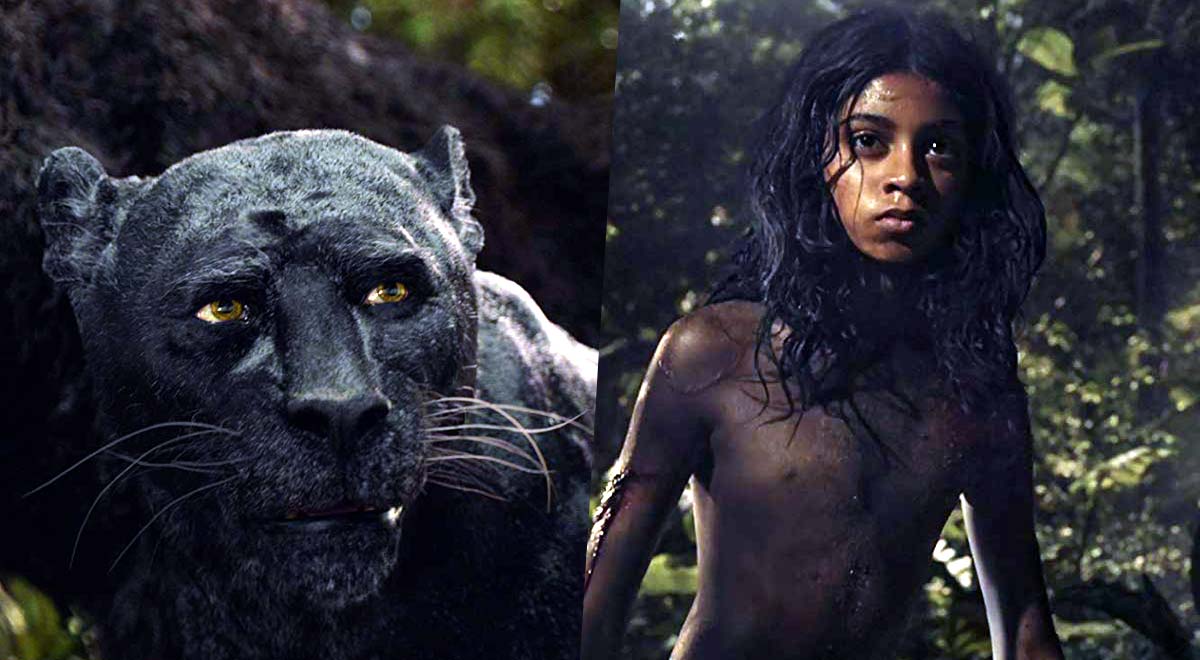In Hollywood, where original ideas are an endangered species, the race against time in delivering your formula is always a critical factor. For every “Capote” there’s an “Infamous,” for every “Braveheart,” there is a “Rob Roy“—aka the lesser, after-the-fact and often-ignored, second version of the same movie that arrives in theaters too late and yet too soon following its predecessor. There are simply no prizes in Hollywood for second place and in the history of such dueling movie projects, the film that arrives first nearly always wins the battle, questions of quality be damned. Director/actor/mo-cap master Andy Serkis‘ “Mowgli: The Legend Of The Jungle,” a live-action, motion-capture adaptation of Disney‘s “The Jungle Book” falls squarely into this category and arrives with bad narrative baggage attached to boot.
READ MORE: 15 Pairs Of Dueling Movies & Their Respective Battles
Disney beat Warner Bros. to the punch in 2016 with Jon Favreau‘s successful, crowd-pleasing and nearly $1 billion-grossing “The Jungle Book” and Serkis’ project, already running late, was delayed. And then delayed again and then WB, nervous, running the numbers and realizing their doom, no matter how good their movie may be, sold the picture to Netflix who don’t have to bear the burden of splitting theatrical distribution costs and expensive nationwide marketing (“Mowgli” will, however, have a limited theatrical run). So, no matter what, “Mowgli,” arrives in the shadow of Favreau’s film and what can only be described as ‘Jungle Book’ fatigue, perhaps even live-action Disney adaptation fatigue (see ‘The Nutcracker‘).
The fact is, Serkis’ film, which is nearly impossible to discuss without at least some comparison to 2016’s “The Jungle Book,” given their recent proximities and similar styles, is better, but that doesn’t mean either movie is a masterpiece. It’s a purposefully darker, more mature movie and it’s mo-caption’d animation—that likely benefited from the delays—are much more realistic than the live-action CGI of Favreau’s picture. And the PG-rated “The Jungle Book,” a bit more pandering to the original 1967 Disney animated film, including using many of the same sentimental songs, was enjoyable, but sometimes goofy and slight. But darker, scarier and more adult PG-13 rating isn’t inherently better either.
READ MORE: ‘Mowgli’ Trailer: Andy Serkis Creates A Darker, Scarier Jungle Book
Admittedly, there’s fatigue in just writing out the same familiar synopsis, but here goes nothing. “Mowgli” follows the story of the titular little boy (Rohan Chand) in India. His parents killed by the ruthless tiger Shere Khan (Benedict Cumberbatch), the baby is left for dead until the empathic black panther Bagheera (Christian Bale) rescues him and brings him to pack leaders Akela (Peter Mullan) Nisha (Naomie Harris) and the wolves in the jungles of India. Bristling against the laws and codes of the jungle that decry man as an evil outsider—he is accepted into the wolf pack by the by the animals of the jungle as one of their own at the protest of Shere Khan, who vows to finish off “the man cub.” Under the tutelage of Bagheera and the bear Baloo (Andy Serkis), as he grows to a young boy, he is taught the rules of the jungle and prepares for his a wolfhood rite of passage. But as Shere Khan, grown angrier and more bitter over the years, begins to threaten Akela, the wolf pack and their leadership in the jungle, the animals must decide whether keeping Mowgli around outweighs the greater good or send him back to his own kind. From there a moral and violent struggle over this potentially sacrilegious decision against the laws of the jungle ensue and Mowgli must come to terms with his identity.
While the story varies and hews closer to Rudyard Kipling’s original ” The Jungle Book” collection of stories than the animated Disney movie it is based on, most of the same greatest hits of the tale are included: Mowgli is stolen by the monkeys (though Serkis version is notably missing the King Louie orangutan character and the entire subplot of helping him attain fire); Mowgli comes across the mysterious, hypnotizing python Kaa (Cate Blanchett), though she’s far less evil in this version; and Mowgli eventually has his big showdown with Shere Khan.
But the devil’s in the details and the details are slightly different. Like Kipling’s original version, Mowgli is captured by the men in the village and becomes kept and tamed by a trophy hunter (Matthew Rhys). There’s also much more time spent with the wolf pack, his training rituals and such before forging out on his own, but this might be splitting hairs.
“Mowgli,” is simply darker, akin to a “Lord Of The Flies“-esque tone (arguably one of the original YA tales), but arguably murkier and mirthless because of it. Chemistry lacks too. Much like Favreau’s “The Jungle Book,” the boy of the story is the weak link. Chand is serviceable, but doesn’t quite spark the necessary empathy to make “Mowgli” a memorably moving tale. Bale seems miscast—as much as one can miscast a voice/mo-cap actor anyhow—and no one delivers as much joy as Bill Murray‘s version of Baloo can. Mulan’s Akela is utterly dead serious too which drives home some of the grimmer sensibilities of the movie.
Taken on its own merits, “Mowgli,” is an admirable and fairly engaging little adaptation of “The Jungle Book” tale that may find the most truck with tween-y Young Adult readers who want a little bit more bite and realism in their narratives. But even its shadowy aesthetic may prove to be uninviting and it just doesn’t possess that dynamic spark that makes or breaks these kinds of movies. It’s likely too forbidding for children and too unattractive for adults that likely already sat through this story less than two years ago with their already-immensely-pleased children. Where does that leave “Mowgli?” Perhaps unfairly buried under the layers of a Netflix algorithm one supposes, perhaps due for a reevaluation on its own terms in some years after the silhouette of its antecedent has faded. [B-]





